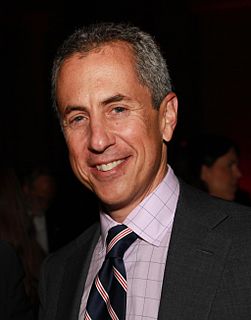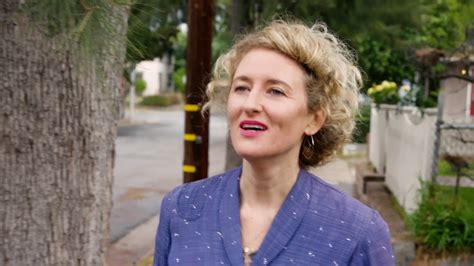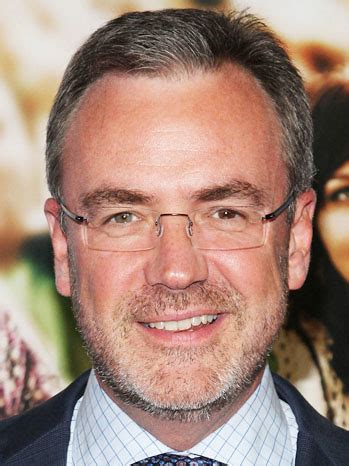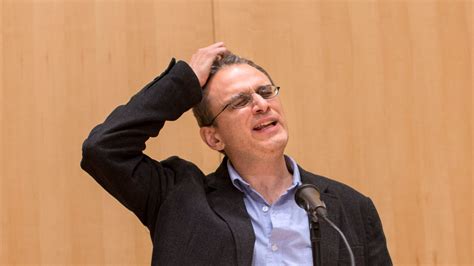A Quote by Reid Hoffman
My greatest influences are actually probably a set of different teachers. And these teachers, most prominently at my high school, but also a few others, helped kind of instill in me, thinking thoughts about how life is meaningful in terms of how we all kind of live in a network of people and how you interact with those people is part of what makes life essentially meaningful and then kind of concepts to think about, how do you add value to other people's lives? How do they add value to yours? And how do you kind of form a community together in the network?
Quote Topics
About
Actually
Add
Also
Community
Concepts
Different
Essentially
Few
Form
Greatest
Helped
High
High School
How
Influences
Instill
Interact
Kind
Life
Life Is
Live
Lives
Makes
Me
Meaningful
Most
Network
Other
Others
Part
People
School
Set
Teachers
Terms
Then
Think
Thinking
Those
Thoughts
Together
Value
Yours
Related Quotes
What I feel I can do is help people become aware of how pervasive and extensive the arts are, how they affect each one of us in our daily lives—what kind of [buildings] we live in, what kind of clothes we wear, what we see with our eyes. We are often blind to the beautiful things around us. What I'm mostly concerned about is how often we're blind to our own talent. I think that within each human being there is a creative spirit, and some of us have been fortunate enough to have good teachers and parents who've brought this out and encouraged it, but others haven't.
I believe that a lot of people in our society today, people who have been hurt and even people who haven't been hurt, get their worth and value from what they do, what they look like, what they own, what kind of job they have, what kind of house they live in, how much money they have, what social circles they're in, what level of education they have, especially even how other people respond to them. They feel better about themselves if everybody is giving a smiling nod to the way they look and all their choices.
Essentially what's going to determine how you succeed in New York is how people feel about the space, how delicious the food is, how they perceive the value and, most important of all, how they feel treated. My understanding is Stephen Starr is exceptionally good at all of this and his ability to create a transporting experience.
Intentional living is the bridge to significance. At the end of every year, I take time out to reflect and evaluate the events of the previous year - what went well and what needed improvement. From that inventory, I lay out my next year - how I intend to live, make the best use of time and maximize adding value to others. Success asks, 'How can I add value to myself?' Significance asks, 'How can I add value to others?' It is your intention that lends itself to significance.
For people who are coming out of an oral tradition, it is very exciting to get into reading and writing and it is quite interesting how frequently people want to write their own story. Sometimes it is straight history - this is how we came about, how our town was created, a lot of that kind of effort, as soon as literacy came. The first thing you wanted to do was to put something down about who you are or how you are related to you neighbors. Then the next stage would be the stories, the cultural part of the story: this is the kind of world our ancestors made or aspired to.
Interesting thing that is happening in American society is that people are starting to talk about money. I don't know how you feel about this, but for a long time, nobody was talking about money. It was a secret. And it's kind of very interesting because we do lots of stuff to portray to people about how much money we have, the clothes we wear and the cars we have and the house - they all kind of depict to other people, signal how much money we make, but we don't talk about it specifically.
The money for my movies mostly come from talented and generous friends willing to work for almost nothing. As a producer, my job is to get as many people to give me things for free as I could. And most people are kind, and they know how hard this kind of thing is, so they are willing to help how they can, and reduce their fees how they can.
I'm not one of these guys who begins the day thinking about what kind of an impact I can have. I instead think about it as what kind of work are we going to do today, how can we make the broadcast better, how can we work as a team, how can we draw on the resources of CBS overall and use them to make the 'Evening News' that much stronger.
High school was interesting. For a lot of people, high school was just a big social experiment, and I think the value of high school was not so much learning how to be a great student... but I think it's learning how to interact with people and be social. I would say that in that endeavor, I completely failed.
There's no doubt about it: fun people are fun. But I finally learned that there is something more important, in the people you know, than whether they are fun. Thinking about those friends who had given me so much pleasure but who had also caused me so much pain, thinking about that bright, cruel world to which they'd introduced me, I saw that there's a better way to value people. Not as fun or not fun, or stylish or not stylish, but as warm or cold, generous or selfish. People who think about others and people who don't. People who know how to listen, and people who only know how to talk.
I think people crave those meaningful situations, stuff about faith, identity, dilemmas of live paradoxes in our souls. It's going back to a time where lives were really defined by history, and also how you behave in the face of history. It's kind of interesting to go back to that simpler humanity, simpler but deeper.
Of all the things people have taught me regarding life lessons or anything that would benefit me, I don't think anything helped me learn more about life than football. You go through so many different things: adversity, how to handle adversity, how to handle success, how to lead, how to be a teammate, how to communicate.



































